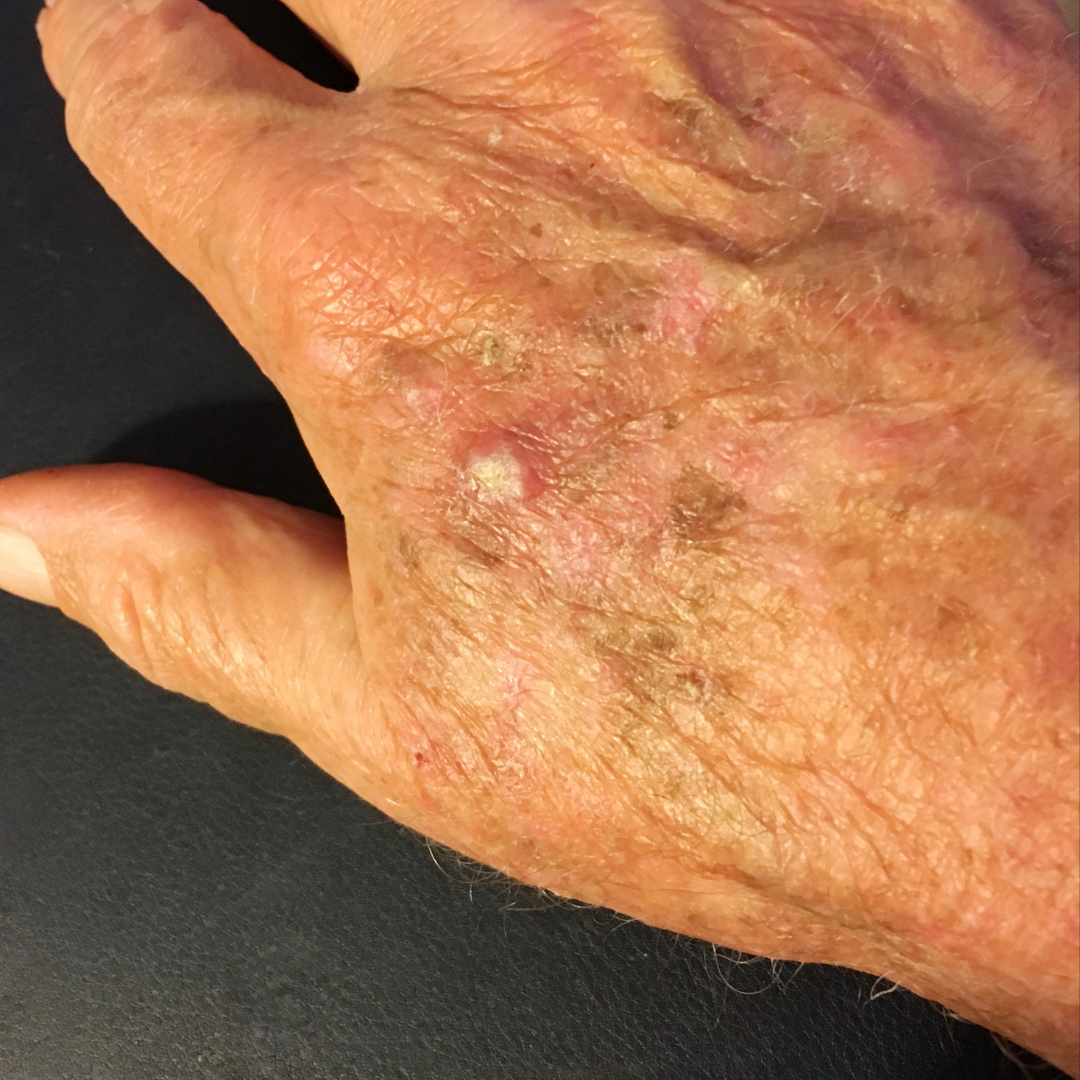
Actinic Keratosis
Description
-
Actinic keratosis (AKs) is a common precancerous skin growth caused by long-term sun exposure. It often appears as a rough, dry, scaly patch on sun-exposed areas such as the face, ears, scalp, neck, arms, or hands. These spots may be pink, red, tan, or flesh-colored and can feel like sandpaper when you touch them.
While not all actinic keratoses turn into skin cancer, they can sometimes develop into squamous cell carcinoma if left untreated. Because of this, regular skin checks and early treatment are important.
How are AKs treated?
Actinic keratoses are precancerous spots, so treating them early helps prevent progression into skin cancer. Treatment depends on how many you have, their size, and where they are located. Common options include:
-
Cryotherapy (Freezing): A quick in-office treatment where liquid nitrogen is applied to freeze off the lesion.
-
Topical Medications: Prescription creams or gels (like 5-fluorouracil, imiquimod, or diclofenac) that treat visible and “invisible” sun-damaged cells over a few weeks.
-
Photodynamic Therapy (PDT): A special light treatment combined with a topical solution that destroys abnormal cells.
Most treatments are quick and effective, and your provider will help choose the best option based on your skin and history. Ongoing sun protection and regular skin exams are key to preventing new AKs from forming.
When to come in?
You should schedule a visit if you notice any of the following:
-
Rough, scaly, or sandpaper-like patches that persist, especially on sun-exposed areas (face, scalp, ears, neck, forearms, hands, or lips).
-
A spot that is tender, itchy, or burns when touched.
-
Areas that keep coming back after peeling or flaking off.
-
A growth that changes in size, thickness, or color.
-
If you have a history of skin cancer or extensive sun damage, since AKs can sometimes progress into squamous cell carcinoma.
Early evaluation is important because actinic keratoses are considered precancerous lesions. Treatment is usually quick and can prevent the spot from turning into skin cancer.
Make appointment